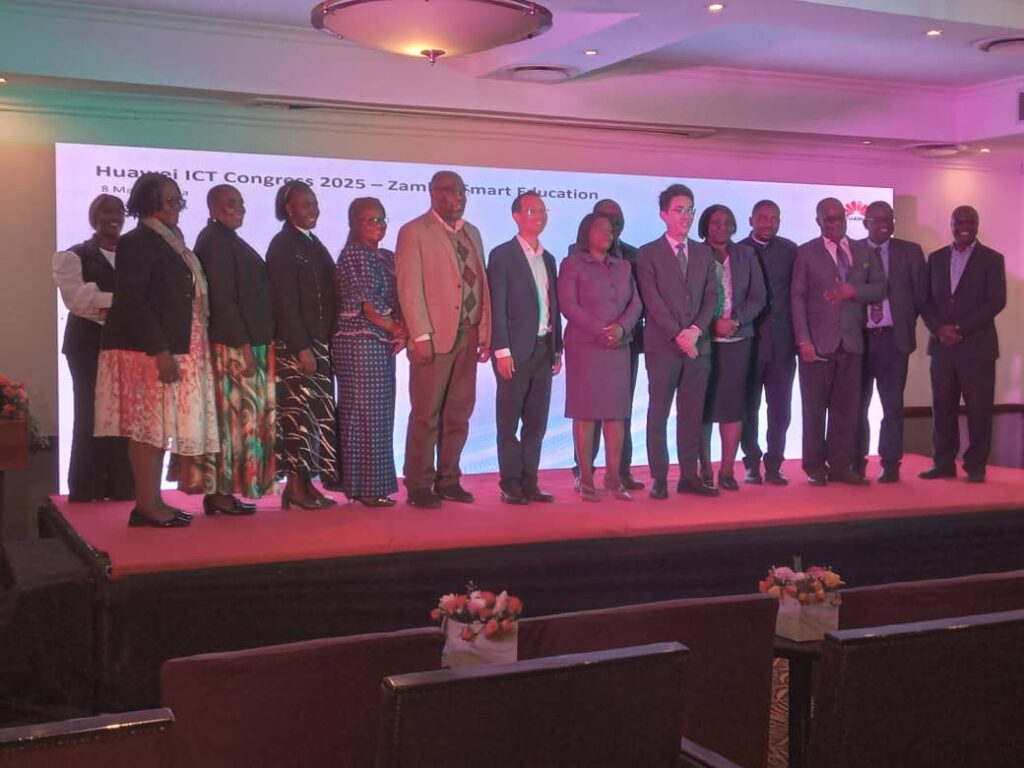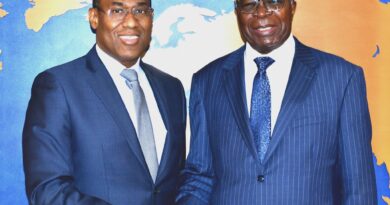Huawei Telecom Congress Spotlights Smart Education, AI, and Digital Equity in Zambia
Zambia’s education and technology sectors took center stage at the Huawei Telecom Congress held at the Southern Sun Hotel in Lusaka, as government officials and tech leaders reaffirmed their commitment to digital transformation under the theme “Accelerating All Intelligence in Zambia.”
The event drew high-level dignitaries including the Permanent Secretary for Administration at the Ministry of Education Mrs. Noriana Mseteka Muneki, Huawei Southern Africa Regional Vice President Mr. Rex Lei, Dr. Bello Moussa, Chief Expert on Digital Education, Huawei Sub-Saharan Africa Region, Victor Musangu, ICT Director of the Ministry of Education and Many others.
In her keynote address, Mrs. Muneku commended Huawei for its continued support to Zambia’s digital journey, especially in the education sector. She noted that Information and Communication Technologies (ICTs) are vital to achieving social and economic development and applauded the role of digital infrastructure in promoting inclusive and smart-driven public services.
“ICTs are a major enabler of digital transformation. Zambia is working to bridge the digital divide and advance technology in rural communities,” she said. Citing a success story from 2024, she highlighted how learners in remote Muchila village, Namwala District, participated in a real-time virtual classroom with Lusaka’s St. Ignatius School—proof that digital tools can equalize educational opportunities.
“This isn’t just about technology; it’s about empowering people, bridging inequalities, and creating a future where every Zambian child can access quality education,” Muneku said, urging more partnerships in smart education.
Huawei’s Vice President for Sub-Saharan Africa, Mr. Alex Lei, opened the congress by emphasizing that the world is experiencing an era of transformation powered by ICT. He said ICT has revolutionized how people communicate, learn, and work — and yet, “this is just the beginning.”
Mr. Lei elaborated on the growing role of Artificial Intelligence (AI) in education. “With AI, we are beginning a new chapter in smart education,” he said. “AI enables real-time feedback for students, helps teachers focus on instruction, and personalised learning experiences, including language translation and curriculum optimization. It creates equal access for rural and underserved communities.”
Dr. Bello Moussa, Chief Expert on Digital Education at Huawei Sub-Saharan Africa Region, echoed this sentiment, describing digital technology as a driving force behind educational transformation. “Technology connects students and teachers through networking. Quality and inclusive education is now attainable through digital platforms,” he said.
From the Ministry of Education, ICT Director Mr. Victor Musangu reinforced the urgency for Zambia to adopt smart education. He noted that while only 33% of teachers are digitally trained, the ministry aims to ensure 100% digital literacy among educators by 2026. “Our goal is for every child to not only be connected but to also access a safe and secure digital education environment,” Musangu added.
The Huawei Telecom Congress concluded with renewed calls for collaboration among government, tech providers, and educational institutions to achieve a digitally empowered Zambia. Huawei was praised as a key partner with over 20 years of support in the country’s digital transformation efforts.



